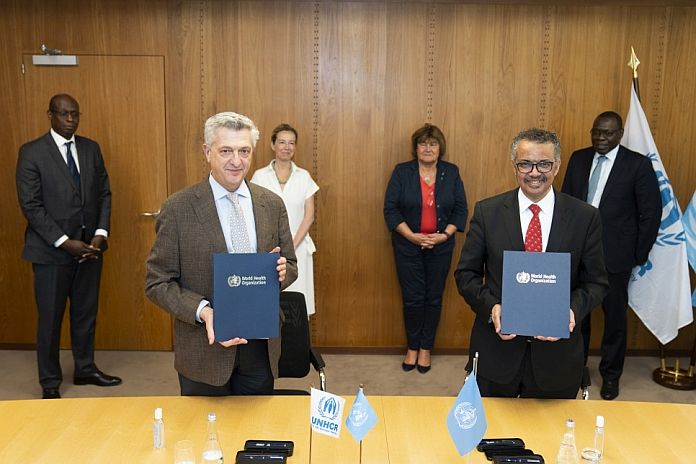By Caribbean News Global ![]()
GENEVA, Switzerland — At the June 19 media briefing on COVID-19 Dr Tedros Adhanom Ghebreyesus announced that the “pandemic is accelerating,” with “more than150,000 new cases of COVID-19 were reported to WHO yesterday – the most in a single day so far. Almost half of those cases were reported from the Americas, with large numbers also being reported from South Asia and the Middle East.”
WHO director-general’s opening remarks declared that “ the world is in a new and dangerous phase. Many people are understandably fed-up with being at home. Countries are understandably eager to open up their societies and economies. But the virus is still spreading fast, it’s still deadly, and most people are still susceptible. We call on all countries and all people to exercise extreme vigilance. Continue maintaining your distance from others. Stay home if you feel sick. Keep covering your nose and mouth when you cough. Wear a mask when appropriate. Keep cleaning your hands. We continue to call on all countries to focus on the basics: find, isolate, test, and care for every case. Trace and quarantine every contact. As the pandemic gathers pace, it’s the most vulnerable who will suffer the most.”
WHO’s mission is to promote health, keep the world safe, and serve the vulnerable. Director-general Ghebreyesus called on all countries rich and poor have populations who are vulnerable to a higher risk of severe disease and death.
“Tomorrow [June 20] is World Refugee Day – an important moment to highlight the risks of COVID-19 for some of the world’s most vulnerable people. Refugees are particularly at risk of COVID-19 because they often have limited access to adequate shelter, water, nutrition, sanitation, and health services. Over 80 percent of the world’s refugees and nearly all the world’s internally displaced people are hosted in low – and middle – income countries. WHO is deeply concerned about the very real and present danger of widespread transmission of COVID-19 in refugee camps,” he said.
Beyond the health threat posed by the virus, COVID-19 is also exposing many refugees to even more severe hardship.
A report by the International Red Cross and Red Crescent Movement shows that about 70 percent of refugees surveyed in Turkey reported having lost their jobs since the start of the pandemic.
“We have a shared duty to do everything we can to prevent, detect and respond to the transmission of COVID-19 among refugee populations,” said Ghebreyesus, “public health measures that reduce transmission of COVID-19 require strict and sustained implementation. This is difficult to achieve in refugee camps, where the public health situation is weak.
Director-general Ghebreyesus recognised Filippo Grandi, the United Nations High Commissioner for Refugees (UNHCR) whose primary purpose is to safeguard the rights and well-being of refugees.
“Our organizations are a natural fit and every day WHO and UNHCR work to strengthen the collaboration between our two agencies. Last month, said Ghebreyesus, “our two organizations signed a new agreement to strengthen and advance public health services for the millions of forcibly displaced people around the world.
“COVID-19 has demonstrated that no one is safe until we’re all safe. Only by putting politics aside and working in true collaboration can we make a difference. We are most vulnerable when we are divided, but with solidarity and cooperation, we will overcome this pandemic, and be better prepared for the crises of the future,” said director-general Ghebreyesus.





